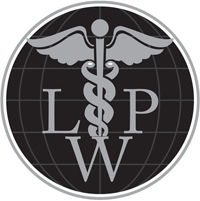Scientists at the University of Sheffield have identified a significant rise in the number of people diagnosed with a serious heart infection alongside a large fall in the prescribing of antibiotic prophylaxis to dental patients.
The pioneering study is the largest and most comprehensive to be conducted with regards to the National Institute for Health and Care Excellence (NICE) guidelines, which recommended dentists should no longer give antibiotics before invasive treatments to people considered at risk of the life threatening heart infection, Infective Endocarditis (IE), which in 40 per cent of cases is caused by bacteria from the mouth.
The team of international researchers, led by Professor Martin Thornhill at the University of Sheffield’s School of Clinical Dentistry, discovered that since the NICE guidelines were introduced in March 2008, there has been an increase in cases of Infective Endocarditis above the expected trend. By March 2013 this accounted for an extra 35 cases per month.
They also identified that the prescribing of antibiotic prophylaxis fell by 89 per cent from 10,900 prescriptions a month, before the 2008 guidelines, to 1,235 a month by March 2008.
Martin Thornhill, Professor of Translational Research in Dentistry at the University of Sheffield, said: “Infective Endocarditis is a rare but serious infection of the heart lining. We hope that our data will provide the information that guideline committees need to re-evaluate the benefits, or not, of giving antibiotic prophylaxis.
Professor Thornhill stressed that healthcare professionals and patients should wait for the guideline committees to evaluate the evidence and give their advice before changing their current practice.
He added: “In the meantime, healthcare professionals and patients should focus on maintaining high standards of oral hygiene. This will reduce the number of bacteria in the mouth which have the potential to cause Infective Endocarditis and reduce the need for invasive dental procedures to be performed.”
The data analysed by an international collaboration of experts from the University of Sheffield, Oxford University Hospitals NHS Trust, Taunton and Somerset NHS Trust, and the University of Surrey in the UK, as well as from the Mayo Clinic and the Carolinas HealthCare System’s Carolinas Medical Center in the USA, is published in The Lancet and will be presented to more than 19,000 delegates from across the world at the American Heart Association annual meeting in Chicago.
The research was funded by a grant from national heart charity Heart Research UK, healthcare provider Simplyhealth and the National Institute for Dental and Craniofacial Research (NIDCR).
Barbara Harpham, National Director of Heart Research UK, said: “The findings play an important part in the ongoing exploration of the link between dental and heart health.
“Projects such as this one are vital to the ongoing collation of evidence to support our understanding of how oral health can impact upon the heart and other conditions within the body. We are committed to furthering medical research in the UK and welcome these new findings.”
http://www.medicalnewstoday.com/releases/285754.php



